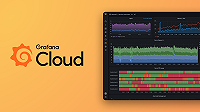Caution
Grafana Alloy is the new name for our distribution of the OTel collector. Grafana Agent has been deprecated and is in Long-Term Support (LTS) through October 31, 2025. Grafana Agent will reach an End-of-Life (EOL) on November 1, 2025. Read more about why we recommend migrating to Grafana Alloy.
Important: This documentation is about an older version. It's relevant only to the release noted, many of the features and functions have been updated or replaced. Please view the current version.
Create a configuration file
The Grafana Agent supports configuring multiple independent “subsystems.” Each subsystem helps you collect data for a specific type of telemetry.
- The Metrics subsystem allows you collect metrics to send to Prometheus.
- The Logs subsystem allows you to collect logs to send to Grafana Loki.
- The Traces subsystem allows you to collect spans to send to Grafana Tempo.
- The Integrations subsystem allows you to collect metrics for common applications, such as MySQL.
Integrations are recommended for first-time users of observability platforms, especially newcomers to Prometheus. Users with more experience with Prometheus or users that already have an existing Prometheus config file can configure the Prometheus subsystem manually.
Integrations
Integrations are individual features that collect metrics for you. For
example, the agent integration collects metrics from that running instance of
the Grafana Agent. The node_exporter integration will collect metrics from the
Linux machine that the Grafana Agent is running on.
metrics:
wal_directory: /tmp/wal
global:
remote_write:
- url: http://localhost:9009/api/prom/push
integrations:
agent:
enabled: trueIn this example, we first must configure the wal_directory which is used to
store metrics in a Write-Ahead Log. This is required, but ensures that samples
will be resent in case of failure (e.g., network issues, machine reboot). We
also configure remote_write, which is where all metrics should be sent by
default.
Then, the individual integrations are configured. In this example, just the
agent integration is enabled. Finally, prometheus_remote_write is configured
with a location to send metrics. You will have to replace this URL with the
appropriate URL for your remote_write system (such as a Grafana Cloud Hosted
Prometheus instance).
When the Agent is run with this file, it will collect metrics from itself and
send those metrics to the default remote_write endpoint. All metrics from
integrations will have an instance label matching the hostname of the machine
the Grafana Agent is running on. This label helps to uniquely identify the
source of metrics if you are running multiple Grafana Agents across multiple
machines.
Full configuration options can be found in the configuration reference.
Prometheus config/migrating from Prometheus
The Prometheus subsystem config is useful for those migrating from Prometheus and those who want to scrape metrics from something that currently does not have an associated integration.
To migrate from an existing Prometheus config, use this Agent config as a template and copy and paste subsections from your existing Prometheus config into it:
metrics:
global:
# PASTE PROMETHEUS global SECTION HERE
configs:
- name: agent
scrape_configs:
# PASTE scrape_configs SECTION HERE
remote_write:
# PASTE remote_write SECTION HEREFor example, this configuration file configures the Grafana Agent to scrape itself without using the integration:
server:
log_level: info
metrics:
global:
scrape_interval: 1m
configs:
- name: agent
scrape_configs:
- job_name: agent
static_configs:
- targets: ['127.0.0.1:12345']
remote_write:
- url: http://localhost:9009/api/prom/pushLike with integrations, full configuration options can be found in the configuration.
Loki Config/Migrating from Promtail
The Loki Config allows for collecting logs to send to a Loki API. Users that are familiar with Promtail will notice that the Loki config for the Agent matches their existing Promtail config with the following exceptions:
- The deprecated field
clientis not present - The
serverfield is not present
To migrate from an existing Promtail config, make sure you are using clients
instead of client and remove the server block if present. Then paste your
Promtail config into the Agent config file inside of a logs section:
logs:
configs:
- name: default
# PASTE YOUR PROMTAIL CONFIG INSIDE OF HEREFull config example
Here is an example full config file, using integrations, Prometheus, Loki, and Tempo:




